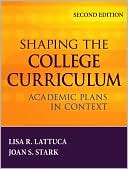Category Books
- Fiction Books & Literature
- Graphic Novels
- Horror
- Mystery & Crime
- Poetry
- Romance Books
- Science Fiction & Fantasy
- Thrillers
- Westerns
- Ages 0-2
- Ages 3-5
- Ages 6-8
- Ages 9-12
- Teens
- Children's Books
- African Americans
- Antiques & Collectibles
- Art, Architecture & Photography
- Bibles & Bible Studies
- Biography
- Business Books
- Christianity
- Computer Books & Technology Books
- Cookbooks, Food & Wine
- Crafts & Hobbies Books
- Education & Teaching
- Engineering
- Entertainment
- Foreign Languages
- Game Books
- Gay & Lesbian
- Health Books, Diet & Fitness Books
- History
- Home & Garden
- Humor Books
- Judaism & Judaica
- Law
- Medical Books
- New Age & Spirituality
- Nonfiction
- Parenting & Family
- Pets
- Philosophy
- Political Books & Current Events Books
- Psychology & Psychotherapy
- Reference
- Religion Books
- Science & Nature
- Self Improvement
- Sex & Relationships
- Social Sciences
- Sports & Adventure
- Study Guides & Test Prep
- Travel
- True Crime
- Weddings
- Women's Studies
Shaping the College Curriculum: Academic Plans in Context » (2nd Edition)

Authors: Lisa R. Lattuca, Joan S. Stark
ISBN-13: 9780787985554, ISBN-10: 0787985554
Format: Hardcover
Publisher: Wiley, John & Sons, Incorporated
Date Published: August 2009
Edition: 2nd Edition
Author Biography: Lisa R. Lattuca
Book Synopsis
Shaping the College Curriculum focuses on curriculum development as an important decision-making process in colleges and universities. The authors define curriculum as an academic plan developed in a historical, social, and political context. They identify eight curricular elements that are addressed, intentionally or unintentionally, in developing all college courses and programs. By exploring the interaction of these elements in context they use the academic plan model to clarify the processes of course and program planning, enabling instructors and administrators to ask crucial questions about improving teaching and optimizing student learning.
This revised edition continues to stress research-based educational practices. The new edition consolidates and focuses discussion of institutional and sociocultural factors that influence curricular decisions. All chapters have been updated with recent research findings relevant to curriculum leadership, accreditation, assessment, and the influence of academic fields, while two new chapters focus directly on learning research and its implications for instructional practice. A new chapter drawn from research on organizational change provides practical guidance to assist faculty members and administrators who are engaged in extensive program improvements. Streamlined yet still comprehensive and detailed, this revised volume will continue to serve as an invaluable resource for individuals and groups whose work includes planning, designing, delivering, evaluating, and studying curricula in higher education.
"This is an extraordinary book that offers not a particular curriculum or structure, but a comprehensive approach for thinking about the curriculum, ensuring that important considerations are not overlooked in its revision or development, and increasing the likelihood that students will learn and develop in ways institutions hope they will. The book brings coherence and intention to what is typically an unstructured, haphazard, and only partially rational process guided more by beliefs than by empirically grounded, substantive information. Lattuca and Stark present their material in ways that are accessible and applicable across planning levels (course, program, department, and institution), local settings, and academic disciplines. It's an admirable and informative marriage of scholarship and practice, and an insightful guide to both. Anyone who cares seriously about how we can make our colleges and universities more educationally effective should read this book."
—Patrick T. Terenzini, distinguished professor and senior scientist, Center for the Study of Higher Education, The Pennsylvania State University
Table of Contents
Preface.
The Authors.
Chapter 1: Curriculum: An Academic Plan.
The Need for a Definitional Framework.
Defining Curriculum as an Academic Plan.
Contextual Influences on Academic Plans.
Constructing Plans: Curriculum Development.
Evolution of the Academic Plan Concept.
Advantages of the Academic Plan Model.
Chapter 2: External Influences: Sociocultural Context.
Patterns of Curriculum Debate.
Evolving Educational Purposes .
Debating General Education and Specialization.
Learners: An Emphasis on Access.
Content Debates: Prescription vs. Choice.
Instructional Process: Occasional Innovation.
Evaluation Debates: Emphasis on Quality Control.
Influences and Potential Reforms.
Chapter 3: Internal Influences: College and University Contexts.
Institutional Influences.
Unit-Level Influences.
Emerging Internal Influences.
Converging Influences.
Chapter 4: Internal Influences: Academic Fields.
Characterizing Academic Fields.
Differences in Course Planning.
Seeking Academic Community.
Building on the Strengths of Academic Fields.
Chapter 5: Creating Academic Plans.
Course Planning.
Program Planning.
College-Wide Planning.
Systematic Design Models.
Sharing Responsibility for Curriculum Design.
Chapter 6: Learners.
Learner Influences on Course Planning.
Learner Influences on Program Planning.
Learner Influences on College Planning.
Multiple Perspectives on Learning.
Learners and Learning Processes.
Understandings of Learning and Knowledge.
Learning in Academic Fields.
Considering Learners in Curriculum Design.
Chapter 7: Instructional Processes.
Teaching Styles.
Contextual Influences on Courses and Programs.
Expanding Choices Among Instructional Processes.
Teaching for Intentional Learning.
Reflecting on Planning and Teaching.
Chapter 8: Evaluating and Adjusting Academic Plans.
Defining Evaluation and Assessment.
Evaluating and Adjusting Course Plans.
Evaluating and Adjusting Program Plans.
College-Level Evaluation.
Evaluating Evaluation.
Responding to Accountability Demands.
Chapter 9: Administering Academic Plans.
Curriculum Leadership and Administrative Roles.
Chapter 10: Models and Strategies for Curricular Change.
Evolution, Adaptation, and Strategic Change.
Scope of Curricular Change.
Models of Change.
Using Multiple Strategies for Curricular Change.
Learning to Change in Academic Organizations.
Maintaining Change.
Academic Plans in Context.
References.
Index.
Subjects
 Academic Administration
Academic Administration  Administration - Curricula
Administration - CurriculaEducation & Teaching
 Teaching & Teacher Training
Teaching & Teacher Training  Teaching - Curricula
Teaching - CurriculaNonfiction
 All Nonfiction
All Nonfiction  Academic Administration
Academic Administration
